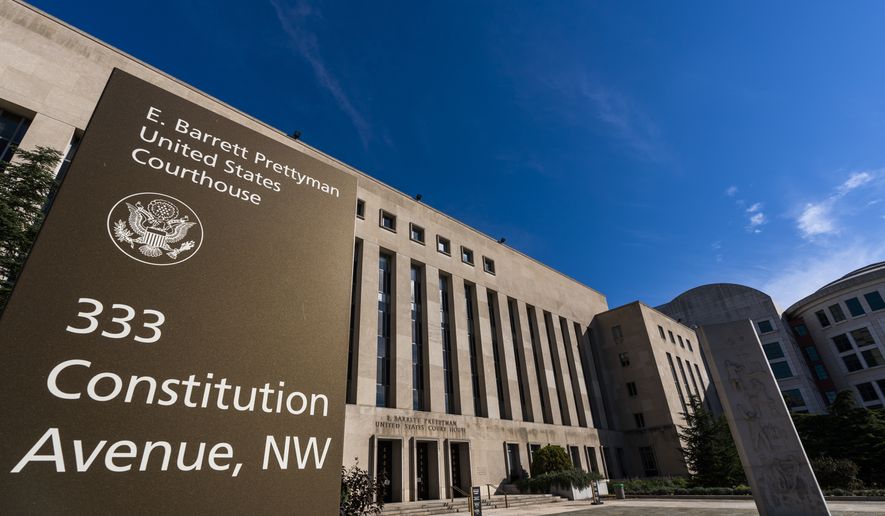A federal judge has slapped down D.C. Mayor Muriel Bowser’s church shutdown policy, chiding the city for restricting freedom of worship during the coronavirus pandemic even when churches were willing to take precautions.
The ruling, issued late Friday, allows Capitol Hill Baptist Church to resume in-person outdoor services as long as precautions are taken.
A photo filed by the church in a recent court brief captured the city’s hypocrisy, showing Miss Bowser standing without a mask amid a tightly packed crowd of Black Lives Matter protesters in June while refusing to allow outdoor religious services unless the numbers were limited.
The city had said the church instead could meet outside the District, conduct services by radio or limit the number of people who could attend to no more than 100.But U.S. District Judge Trevor McFadden, a Trump appointee, said none of those met the church’s deeply held religious need to meet as a whole congregation, which numbered nearly 1,000 people before the pandemic meant.
He said city officials may think their alternatives are good enough but that’s not up to them to dictate. The church has a sincerely held belief about the centrality of a full communal gathering, and the city is hindering that.
“It is for the church, not the District or this court, to define for itself the meaning of ‘not forsaking the assembling of ourselves together,’” Judge McFadden wrote, citing the scriptural passage from the New Testament’s Epistle to the Hebrews.
And he said the city’s argument that the church should have acted sooner is undercut by records showing that Capitol Hill Baptist Church had been negotiating for months to try to reach a solution — though it had always insisted that the full congregation must be allowed to worship together.
Judge McFadden ruled that Miss Bowser’s pandemic rules violated the Religious Freedom Restoration Act (RFRA), which requires any federal restriction on worship to be the most narrowly tailored possible.
Because the District is a federal enclave ultimately controlled by Congress, it is covered by the law.
“The church has consistently represented that it will take appropriate precautions such as holding services outdoors, providing for social distancing, and requiring marks,” the judge wrote. “The District has not put forward sufficient evidence showing that prohibiting a gathering with these precautions is necessary to protect the public.”
Judge McFadden also accused the city of “sandbagging” the church with a last-minute legal filing suggesting that church gatherings are virus hot spots.
The judge said not only did the filing come in late, it also used data from indoor services in March, at the beginning of the pandemic, before social distancing and masks were in regular use. And in the late filing, the city’s health officials admitted they hadn’t reviewed Capitol Hill Baptist Church’s own proposals.
The Justice Department had weighed in on the side of the church.
Judge McFadden’s ruling turned on federal law, but the RFRA largely tracks the same tests for religious practice protected by the First Amendment.
Disparate treatment in many cities of religious services versus mass protests, also protected by the First Amendment, have irked religious freedom advocates.
“There are five freedoms in the First Amendment — religion, speech, press, assembly, and protest — and the government doesn’t get to pick and choose,” said Sen. Ben Sasse, Nebraska Republican. “Bureaucrats can’t say, ‘We like your protest, but we don’t like your worship service.’ This decision is good news for all Americans.”
Capitol Hill Baptist Church said Miss Bowser herself appeared among tens of thousands of protesters at the June 6 rally on a street she renamed Black Lives Matter Plaza in their honor.
The church said the city has granted exemptions from its 100-person limit to the Kennedy Center and to an outdoor movie theater in a stadium parking lot.
The church also pointed out that while it ha been meeting in Virginia with less than a full congregation, no known COVID-19 cases have been attributed to it.
• Stephen Dinan can be reached at sdinan@washingtontimes.com.




Please read our comment policy before commenting.